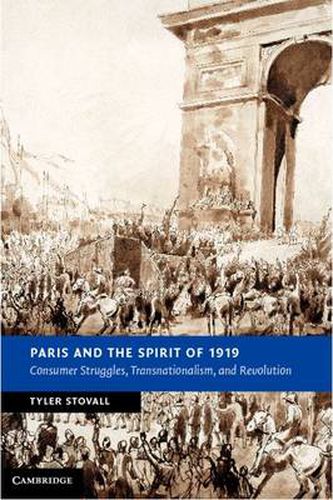Readings Newsletter
Become a Readings Member to make your shopping experience even easier.
Sign in or sign up for free!
You’re not far away from qualifying for FREE standard shipping within Australia
You’ve qualified for FREE standard shipping within Australia
The cart is loading…






This transnational history of Paris in 1919 explores the global implications of the revolutionary crisis of French society at the end of World War I. As the site of the peace conference Paris was a victorious capital and a city at the center of the world, and Tyler Stovall explores these intersections of globalization and local revolution. The book takes as its central point the eruption of political activism in 1919, using the events of that year to illustrate broader tensions in working class, race, and gender politics in Parisian, French, and ultimately global society which fueled debates about colonial subjects and the empire. Viewing consumerism and consumer politics as key both to the revolutionary crisis and to new ideas about working-class identity, and arguing against the idea that consumerism depoliticized working people, this history of local labor movements is a study in the making of the modern world.
$9.00 standard shipping within Australia
FREE standard shipping within Australia for orders over $100.00
Express & International shipping calculated at checkout
This transnational history of Paris in 1919 explores the global implications of the revolutionary crisis of French society at the end of World War I. As the site of the peace conference Paris was a victorious capital and a city at the center of the world, and Tyler Stovall explores these intersections of globalization and local revolution. The book takes as its central point the eruption of political activism in 1919, using the events of that year to illustrate broader tensions in working class, race, and gender politics in Parisian, French, and ultimately global society which fueled debates about colonial subjects and the empire. Viewing consumerism and consumer politics as key both to the revolutionary crisis and to new ideas about working-class identity, and arguing against the idea that consumerism depoliticized working people, this history of local labor movements is a study in the making of the modern world.